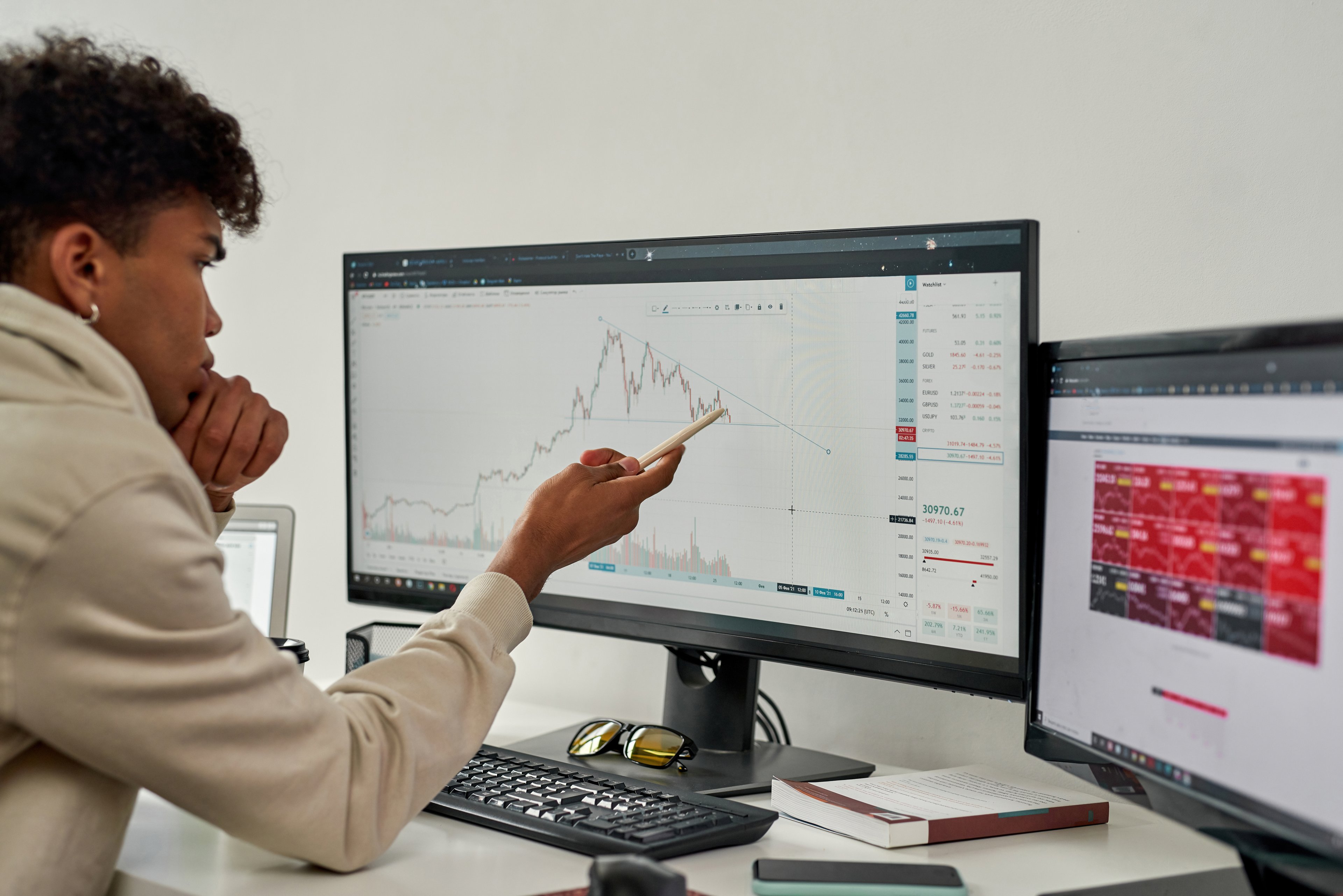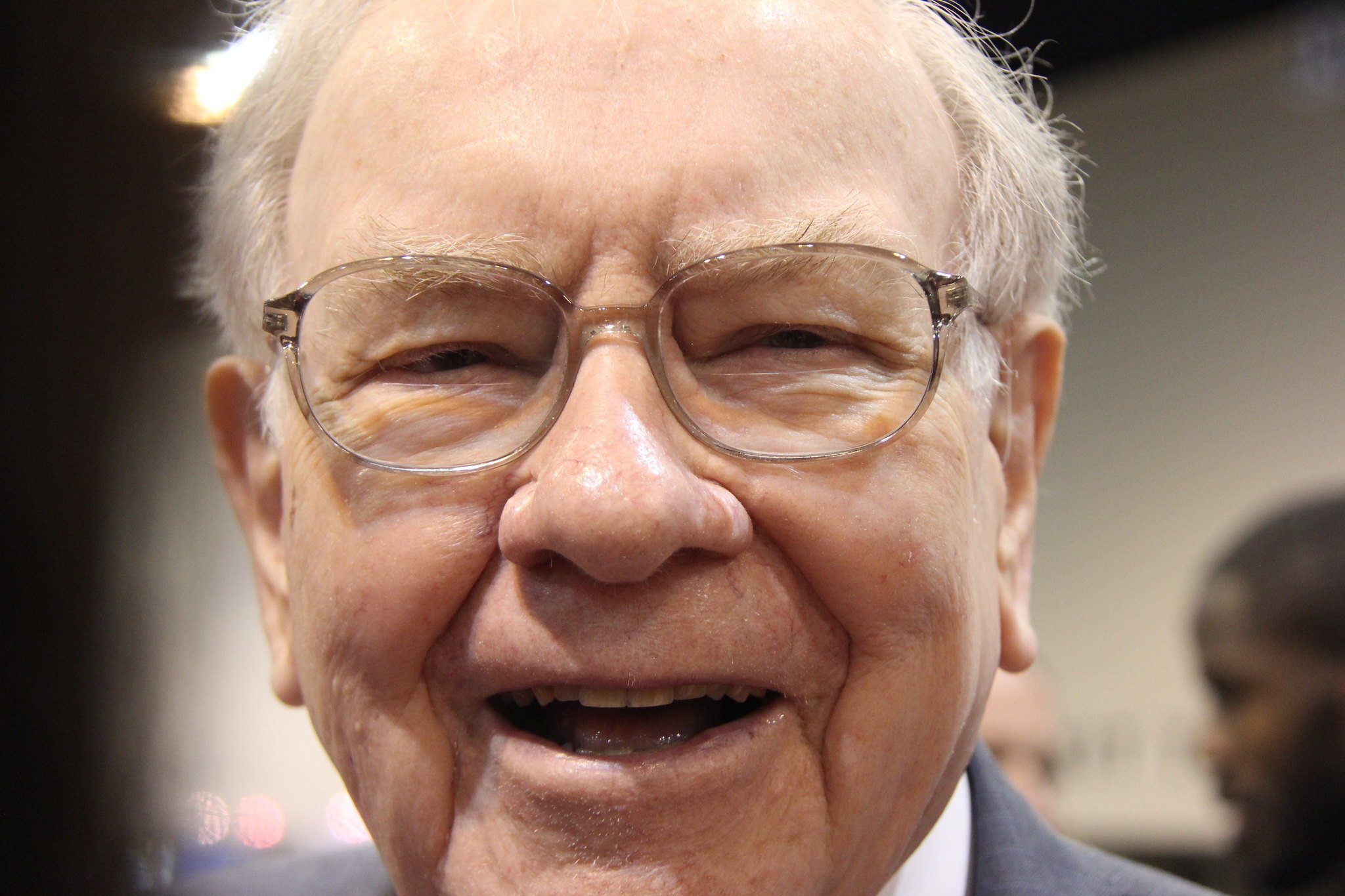There isn't a money manager on Wall Street who commands the attention of professional and everyday investors quite like Berkshire Hathaway (BRK.A +0.04%)(BRK.B +0.13%) CEO Warren Buffett. The affably dubbed "Oracle of Omaha," who's set to step down from the CEO role by the end of the year, has delivered a nearly 5,750,000% cumulative return in his company's Class A shares (BRK.A) since grabbing the reins six decades ago.
Even though Buffett is fallible, it hasn't stopped investors from riding his coattails to phenomenal long-term gains. Berkshire's billionaire chief has demonstrated a knack for finding great deals hiding in plain sight.

Berkshire Hathaway CEO Warren Buffett. Image source: The Motley Fool.
Usually, quarterly filed Form 13Fs allow investors to track Buffett's investment activity. This filing, which is required of institutional investors with at least $100 million in assets under management, offers a concise snapshot of which stocks top-tier asset managers have been buying and selling.
But what you might find surprising is that Warren Buffett's favorite stock to buy -- a company he deployed close to $78 billion into since mid-2018 -- isn't listed in Berkshire Hathaway's 13F filings.
Warren Buffett once purchased his favorite stock for 24 consecutive quarters
A quick glance at the $281 billion investment portfolio the Oracle of Omaha oversees at Berkshire Hathaway would lead investors to believe that one of his company's core holdings -- Apple, American Express, Bank of America, and Coca-Cola -- must be his favorite stock. But in reality, none of these companies comes close to the almost $78 billion Buffett has dropped buying shares of his No. 1 stock.
To find a detailed history of Buffett's buying activity for his favorite stock, you'll need to peruse Berkshire Hathaway's quarterly operating results. On the final page of each quarterly report, just prior to the executive certifications, you'll find detailed purchasing activity of the stock Buffett holds nearest and dearest to his heart.
I'm talking about Berkshire Hathaway.

NYSE: BRK.B
Key Data Points
Prior to July 2018, Warren Buffett and now-late right-hand man Charlie Munger had their proverbial hands tied when it came to share repurchases. The rules governing buybacks only allowed for repurchases if Berkshire Hathaway stock fell to or below a 20% premium to book value (i.e., 120% of book value). Since Berkshire stock never dipped below this line-in-the-sand threshold, not one penny was used for buybacks.
On July 17, 2018, Berkshire Hathaway's board amended the buyback rules to give Buffett and Munger more liberty to deploy capital for repurchases. These new mandates allowed repurchases to be undertaken with no ceiling or end date, as long as the company has at least $30 billion in combined cash, cash equivalents, and U.S. Treasuries, and Buffett believes his company's stock is intrinsically cheap.
In the wake of this change, Berkshire's billionaire boss repurchased his company's stock with a purpose. For 24 consecutive quarters (a six-year stretch spanning July 17, 2018, to June 30, 2024), Buffett spent almost $78 billion to retire approximately 12.5% of Berkshire's outstanding shares.
In addition to buybacks incentivizing long-term investing, they've had a noticeably positive impact on Berkshire Hathaway's earnings per share.

Image source: Getty Images.
The Oracle of Omaha has gone cold turkey on his No. 1 stock (and there's a good reason why)
However, there's been a night-and-day difference to Buffett's approach with his favorite stock over the last year. During the third quarter of 2024, he didn't purchase a single share of Berkshire Hathaway for the first time in 25 quarters. But this wasn't an anomaly -- it was the start of a trend.
Based on Berkshire Hathaway's second-quarter operating report, which was filed on Saturday, Aug. 2, Buffett has now gone 12 consecutive months without spending a dime on share buybacks.
The reason for this change of heart appears to boil down to one of the very few variables the Oracle of Omaha doesn't waver on: valuation.
During the 24-quarter period where share buybacks were being undertaken on an almost-monthly basis, Berkshire Hathaway stock was pretty consistently trading between a 30% and 50% premium to book value. But for much of the previous four quarters, Berkshire stock has hovered between a 60% and 75% premium to its book value. Warren Buffett has consistently demonstrated a willingness to sit on his hands and wait for valuations to come into his wheelhouse -- and this apparently applies to his own company's stock as well.
Berkshire's billionaire chief choosing to go cold turkey on his No. 1 stock speaks to the broader theme of the market being historically pricey.
JUST IN 🚨: Warren Buffet Indicator jumps to most expensive stock market valuation in history, surpassing the Dot Com Bubble and the Global Financial Crisis 👀 pic.twitter.com/xTmDlxJsjB
-- Barchart (@Barchart) July 25, 2025
In a 2001 interview with Fortune magazine, Buffett referred to the market-cap-to-GDP ratio as "probably the best single measure of where valuations stand at any given moment." This ratio, which adds up the value of all public companies and divides it by U.S. gross domestic product (GDP), is now known as the "Buffett Indicator."
Back-testing the Buffett Indicator to 1970 reveals an average market-cap-to-GDP ratio of 85%. This is to say that the cumulative value of tradable stocks equates to 85% of U.S. GDP. In late July, the Buffett Indicator hit an all-time high of more than 210%! Based on Buffett's favorite valuation measure, the stock market has never been pricier.
To build on this point, Berkshire's boss has been a net seller of stocks for 11 consecutive quarters, to the tune of $177.4 billion. Not repurchasing Berkshire Hathaway stock is simply an extension of the overall stock market offering very few deals at the moment.
If there's a silver lining here, it's that being patient and waiting for price dislocation to crop up is something Warren Buffett and his top advisors are excellent at. With more than $344 billion in combined cash, cash equivalents, and U.S. Treasuries on Berkshire's balance sheet, there's more than enough firepower to be aggressive when the time comes.
Eventually, share buybacks will recommence. Realistically, it may not happen before Warren Buffett makes his exit as CEO.






